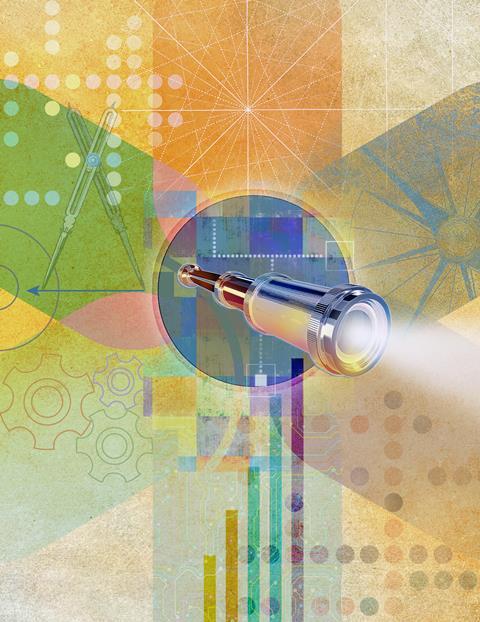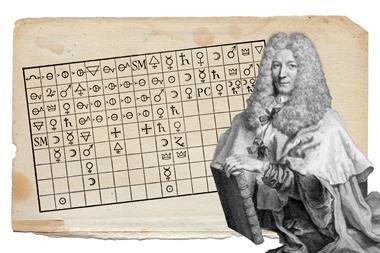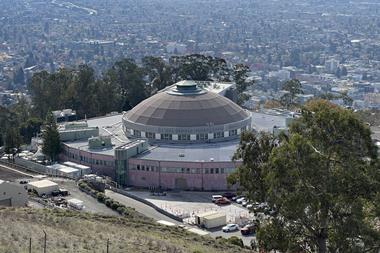How scientists look into the past, present and future

While in common parlance ‘prediction’ concerns claims about things that have not happened yet, this is not how it is construed in science.
Paleontology makes predictions about animals and plants that existed millions of years ago. Astrochemistry makes predictions about things that are happening now but to which we have no direct observable access, such as the chemical composition of the atmosphere of distant stars or planets.
More generally, scientific predictions are claims about objects, processes or phenomena that have not yet been sufficiently corroborated through reliable empirical means. The ability of a theory, model or scientific hypothesis to correctly predict how an object, process or phenomenon unfolds is considered not just a virtue but also empirical evidence that it says something correct about the world.
As with prediction, discovery can also mean different things. A scientific discovery is often associated with acquiring new insight. In this context it can refer to the discovery of an object (such as a planet, element or form of energy) or to the discovery of a previously unknown property or process (such as that the earth moves around the sun). What is important in cases of purported scientific discoveries is that they carry considerable epistemic weight: the discovery is not perceived as a conjecture but as an empirically well-established fact.
Scientific predictions and discoveries are connected because discoveries are often invoked as evidence that a prediction is correct (or not). Take for instance that classic example of the discovery of Neptune. When, in 1821, Alexis Bouvard formulated astronomical tables for the orbit of Uranus based on Newton’s laws of motion, astronomers noticed that the predictions did not match the observational data of Uranus’ position. This led some astronomers to claim that there exists a planet which had not been discovered yet, but which influences the orbit of Uranus. Indeed, this prediction was corroborated by the discovery of Neptune in the mid 1800s by Urbain Le Verrier (some also acknowledge John Couch Adams, Johann Gottfried Galle and even Galileo for the discovery).
While the discovery of Neptune supported the prediction, there are also instances where the resulting discovery contradicted a prediction, as with the case of Mercury’s orbit deviating from the predictions of Newton’s theory. Eventually, this became one of the reasons why the theory was rejected.
In philosophy of science, the concepts of prediction and discovery have received considerable attention. Both are connected to major philosophical issues around science such as the nature of knowledge, scientific realism, confirmation and the distinction between science and pseudoscience.
With respect to chemistry, the interconnection of prediction and discovery has been mostly discussed in the context of the periodic table. When it was first accepted in the form proposed by Dmitri Mendeleev, the periodic table had certain gaps that predicted the existence of some elements that had not been discovered yet. Indeed, based on these gaps chemists managed to discover the elements scandium, gallium, germanium and technetium, which had (more or less) the properties of the elements posited by Mendeleev. As philosopher Peter Lipton put it:
‘When Mendeleev produced a theory of the periodic table that accounted for all sixty [really sixty-two] known elements, the scientific community was only mildly impressed. When he went on to use his theory to predict the existence of two unknown elements that were then independently detected, the Royal Society awarded him its Davy Medal. Sixty accommodations paled next to two predictions.’1
This celebratory remark about Mendeleev’s table was part of a more general philosophical stance called predictivism. According to this, a scientific theory, hypothesis or model is best corroborated if it is able to make novel predictions. Put differently, predictions carry stronger empirical weight than accommodations. This not only influences how strongly we believe in a theory, hypothesis or model, but also indicates which theory one should choose when faced with competing ones. Applied to the case of the periodic table, predictivism implies that it was correct to choose Mendeleev’s proposed table over alternative proposed classifications exactly because it successfully predicted the existence of certain chemical elements.
However, there has also been resistance to this argument. Specifically, John Worrall and Eric Scerri have argued against the claim that Mendeleev’s table was as successful in making novel predictions as is usually thought. This is because Mendeleev made important mistakes; among other things, he predicted elements that do not exist, and incorrectly predicted the melting point of gallium.2
All this doesn’t even scratch the surface of what one can say about the role of prediction and discovery in science. Among other things, a particularly interesting issue is whether we can still think of discovery and prediction the same way it was construed in the past. The current attempts to discover superheavy elements suggest that perhaps one should not conceive these two concepts as before, as experimental challenges make it extremely difficult to synthesize new elements and empirically observe their properties. So pursuing a thorough conceptual analysis of discovery and prediction may be more crucial to our understanding of scientific practice than one might think!
References
1 P Lipton, Inference to the best Explanation. London: Routledge, 1991, p134
2 E R Scerri and J Worrall, St Hist Phil Sci Part A, 2001, 32, 407 (DOI: 10.1016/s0039-3681(01)00023-1)

















No comments yet